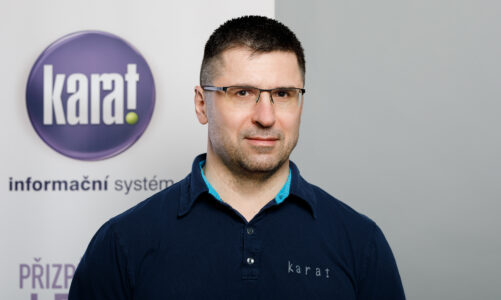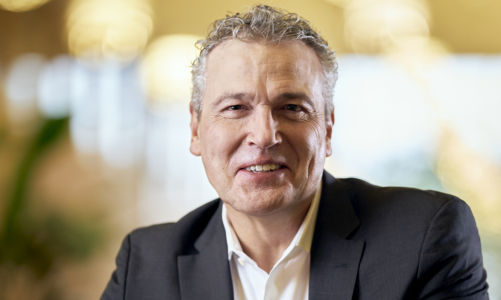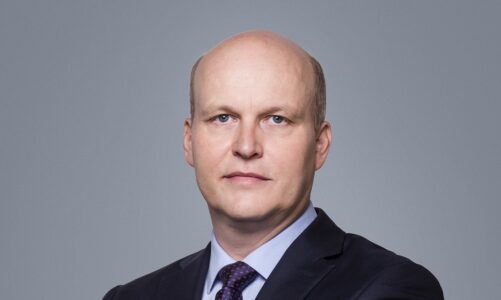Anyone who visits Johannes Meran, the CEO of the Liechtenstein Group, in the Liechtenstein City Palace in Vienna’s inner city, will not enter the Palace via the Grand Staircase, but via a small, unremarkable entrance door. The Liechtenstein Group offices are on the third floor, where everything is unostentatious, functional and brightly lit.
First question, straight up: how was business in 2023?
JOHANNES MERAN: Very good in general. You see, we operate in many different verticals around the globe. In this respect, the challenges we face are slightly different everywhere. Our specific investments are in agriculture, forestry, renewable energy and real estate. On the one hand, we manage companies that have been owned by the Liechtenstein family for many decades, if not centuries, while, on the other hand, we also make substantial investments in those same verticals. From a business perspective, I am leased to say that we can look back on a positive year.
Where are new priorities being set?
As a Group, we have a very global orientation and invest in companies around the world that fit with our portfolio. Where we are invested in a business, we consequently also provide active support in relation to the management or further development of the business. Here, our focus is very clearly on innovation. In addition, sustainability is a key issue for us. We think long-term and – in line with the priorities of the Liechtenstein family – across generations. It lies in the nature of things, you might say. After all, our aim is to ensure that the industries in which we operate are fit for the future.
Does this mean the use of high-tech methods?
Maybe, but not necessarily. Quite often for us, it’s simply about changing practices in agriculture and forestry. This might mean that we stop doing things that were established practice for decades.
Can you give an example of this?
No-till farming, meaning direct seeding without tillage, is a trend in agriculture. Dispensing with heavy tillage prevents erosion and increases humus content and ultimately also soil fertility. This also involves a change of mindset. We see this particularly in relation to rice cultivation, since this is an area in which we are truly revolutionizing things – using ideas that we are convinced will bear fruit over the coming years.
What activities in the field of rice cultivation are you referring to?
Specifically, I am referring to our rice seed company, RiceTec. We have developed hybrid rice seed that is significantly easier to grow than would be the case using conventional methods. When we think of rice-growing, many of us have a picture in our minds of flooded rice fields. In an initial stage, the rice is germinated in water. Once this is completed, it is transplanted, but then put back under water in order to control weed pressure.
So what can RiceTec do?
The seeds can be directly sown, meaning they do not have to be transplanted. In addition, our scientists and researchers have managed to breed herbicide tolerance into the rice using classical breeding methods. RiceTec has developed a fully-integrated cropping solution for directly seeded and herbicide-tolerant rice. Rice is one of the most important staple foods in the world. We are convinced that directly seeded, herbicide-tolerant rice will play a key role in feeding the world’s population during times of climate change.
Why?
Conventional rice cultivation using flooded fields produces a great deal of methane, one of the world’s most powerful greenhouse gases. The seeds we have developed not only enable significant water saving, but they also contribute to a reduction in methane emissions and thus help minimize global warming. This brings together a lot of things that are important to us here at the Liechtenstein Group.
For those who don’t know, where else does the Liechtenstein Group have operations?
Our headquarters, with the investment team, are in Vienna. We operate across four continents, including Europe, of course. For example, apart from our Austrian origins, we are also currently very active in Spain, where we have invested in an avocado farm and the biotech company Green Universe Agriculture. In addition, we are invested in Israel, where we have a stake in N-Drip, an irrigation company. In Germany we have a successful partnership with TESVOLT, a battery storage producer. These are just a few of our many investments.
What projects are ongoing in the renewable energy sector?
Here, we invest in both hard assets and technology and services generally. Specifically, these are photovoltaic systems and wind turbines. However, if the energy transition is to succeed, elektricity storage systems will play a vital role. This is why we joined forces with Wittenberg-based company TESVOLT, which is playing a key role in the energy transition.
Thank you for the interview.
About Liechtenstein Group
The Liechtenstein Group is an international group of companies and investment platform owned by the Foundation Prince Liechtenstein, operating in the areas of Food & Agriculture, Forestry, Renewable Energy and Real Estate. The Group pursues a long-term investment strategy with an international orientation, focused on its four core sectors. Through its activities, the Liechtenstein Group aims to make a positive contribution to the sustainable development of these industries. Liechtenstein Group‘s portfolio companies include, among others, rice seed company RiceTec, NDrip, the LIECO Group, TESVOLT, PV-Invest, Wilfersdorf Estate and Forestry Operations, Kalwang Forest, and Liechtenstein Real Estate. Further information may be found at www.lgroup.com.




